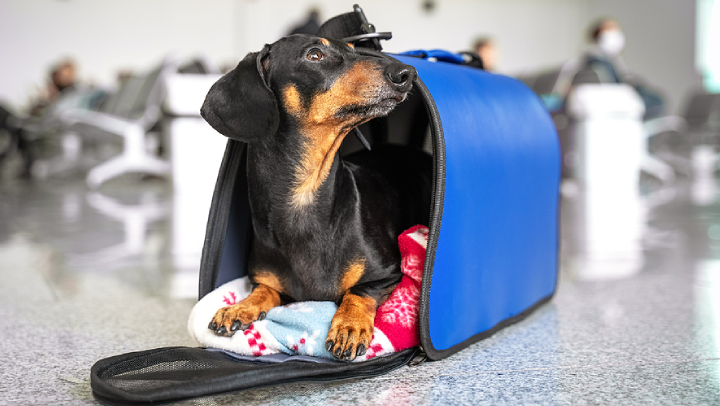When moving to Australia from Singapore, you will have to navigate various legal processes that may be foreign and complicated. Worse yet, these tricky processes may seem unclear as there are many conflicting resources on the Internet.
Pet owners may experience added confusion as migrating comes with another concern; how can they safely and legally bring their pet abroad with them? After all, migrating to a new country is not complete without taking your beloved pet along with you.
Migration laws vary in each country, and Australia has its own unique set of rules. Here are things you need to know when bringing your pet along as you immigrate to Australia from Singapore.
Some breeds are prohibited from entering Australia
Australia categorises countries by the risk of rabies, and Singapore is considered a Group 2 country. Each country comes with its unique set of procedures to clear.
When importing cats and dogs from Singapore, check the breed of your animal. Hybrid cats and dogs are generally prohibited from entering Australia. Some breeds are banned for their aggressiveness and their history as fighting dogs. Examples include Savannah cats, Bengal cats, Pitbull Terriers, and Japanese Tosas.
So, be sure to read the prohibitions and requirements first before making a final decision on bringing your pet abroad permanently.
Be sure to microchip your pet
Microchipping is the practice of inserting a very small identification chip under the skin of an animal.
Each chip comes with a unique code that can be scanned by the relevant authorities. Details about the owner and the pet’s health are recorded in a database with the code, and animal shelters can hence identify your pet if it is lost.
Microchips must be compatible with ISO readers, such as Avid, Trovan, and Destron. Ensure that your chip is ISO 11784 or ISO 11785 compliant, and it has to be at least 15 digits long. The Department of Agriculture, Water and the Environment also rejects microchips that start with “999” as they are not unique and would not be effective in identifying your pet.
It’s up to you as the furparent to get the right microchip to keep your pet safe and sound, at all times!
Apply for an import permit
Like their owners, pets need a passport when moving to Australia from Singapore.
All pets entering Australia require an import permit. Import permits take a long time to process, so get started as early as you can. It is advisable to begin applying for a permit at least 50 days before you move.
You can register an account on the Biosecurity Import Conditions system (BICON) and submit all relevant documents and payments according to the website’s instructions. Some documents include the RNAT test declaration form, RNAT test lab report, and proof of vaccination against rabies.
And voila! Your pet’s passport is secured – you can focus on other preparations to get your furry friend ready for the move.
Get your pet vaccinated and tested early
It is essential to get your pet vaccinated against rabies. In Australia, laws mandate that all pets under category II have to be vaccinated against rabies after their microchip implantation.
Cats also have to get additional vaccinations against feline enteritis, rhinotracheitis, and calicivirus. Dogs from Singapore also have to be vaccinated against the canine influenza virus (CIV).
Check with your veterinarian to ensure that your pet is fully vaccinated in compliance with Australian laws.
Transport your pet safely
Pets are not allowed to travel in the cabin with their owners. Instead, they must travel in an International Air Transport Association (IATA) approved crate.
You can refer to the guidelines for the necessary dimensions and requirements for the crate online. From your pet’s size and weight, suitability of a container, to the number of animals for transportation – there are many considerations to make prior to the confirmation of a pet’s move.
Furthermore, all pets must arrive directly at Melbourne International Airport for their quarantine.
Book a quarantine slot for your pet.
All pets entering Australia must be quarantined in a facility located in Mickleham (Melbourne, Victoria) for at least ten days.
After being granted an import permit, you should book a quarantine slot immediately as they are subject to availability, and waiting periods may take longer than expected. Without a confirmed booking, your pet will not be allowed to fly into Australia.
Still, rest easy – you do not have to worry, as your pet will be well taken care of by veterinary professionals. The animals will stay in pens with regulated temperatures and climate. High-quality dry food will be provided once a day, but you can also submit a form specifying any dietary requirements for your pet.
Moreover, you’ll find that bedding and toys are all provided by the facility. Any bedding or toy in the crate will be removed and disposed of as the pet comes into contact with them during their travel.
Say hello to happier and safer travels for your pet too!
Australia contains many pet-friendly outdoor spaces, and pet services such as clinics and groomers are widely available. Be sure to comply with these importation laws, and you will be able to reunite with your pet after the quarantine period!
NTRUST is a migration agency that can help you with migration processes, including pet importation. Not to mention, we’re the first registered Australia migration company that specialises in Australia PR application – be it consultation, documentation, or legal matters – we’re the right person for the job. So, feel free to contact us at +65 6299 0245 and schedule an appointment to immigrate to Australia from Singapore with ease!
